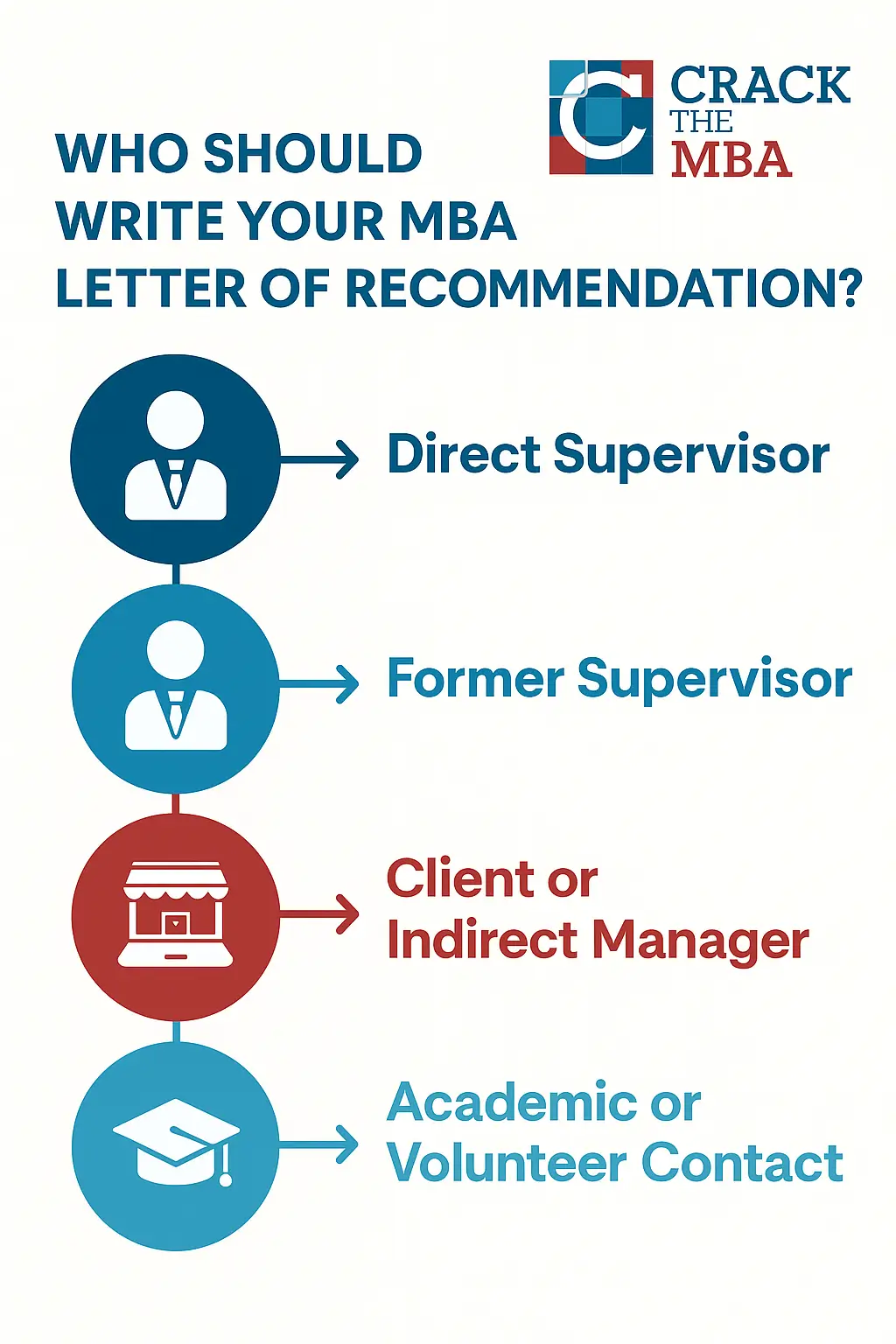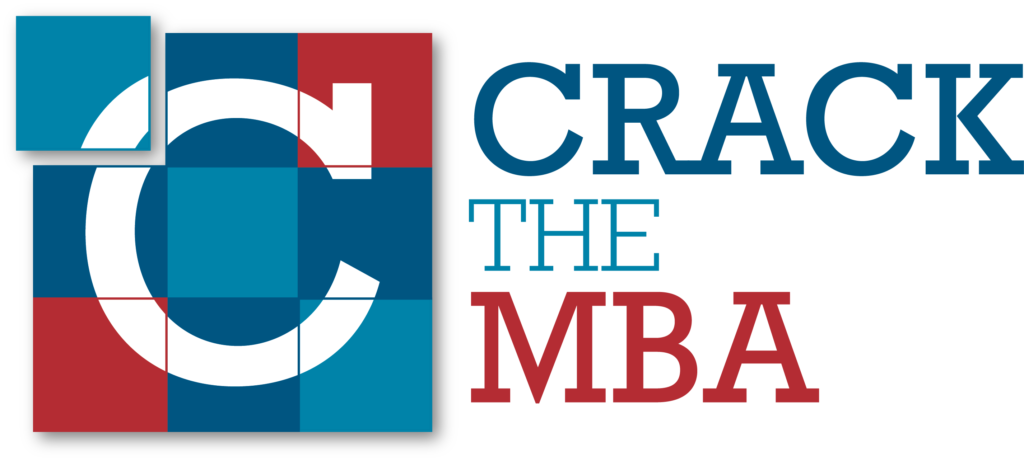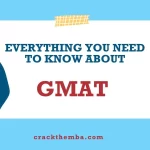MBA Letter of Recommendation Guide: Who, When & How
In your MBA application, nearly every element, your resume, essays, and test scores, reflects your own perspective. The MBA letter of recommendation, however, stands apart. It offers the admissions committee a credible, third-party evaluation of your professional strengths, leadership potential, and overall fit for business school. Written by someone who has directly supervised or worked closely with you, this letter serves as an objective endorsement of your candidacy and can often tip the scales in a highly competitive applicant pool.
Unlike essays, where you advocate for yourself, MBA recommendation letters come from employers or supervisors who can speak to your real-world performance. A strong LOR not only highlights your accomplishments but also offers insight into your work ethic, motivation, collaborative ability, and resilience — traits that matter deeply to top business schools.
Most MBA programs require one or two recommendation letters, and given this limited opportunity, choosing the right recommenders is critical. In this article, we’ll explore:
- Who makes the best MBA recommenders
- When and how to approach them
- What you can do to ensure they write an impactful, school-specific letter
Whether you’re applying to Harvard, Wharton, INSEAD, or any top MBA program, this guide will help you maximize the value of your MBA letter of recommendation.

- Who should you ask for the MBA Letter of Recommendation?
- How to Approach and Support Your MBA Recommender
- How to Help Your MBA Recommender Write a Strong LOR
- When should you ask your recommender?
- Don’t Forget to Thank Your Recommenders
- Final Thoughts
- Additional Information – What different business schools ask your recommenders?
Who should you ask for the MBA Letter of Recommendation?
Top business schools overwhelmingly prefer professional recommendations over academic ones. If a program requires two letters of recommendation, as most do, aim to get both from professional sources. Ideally, one of your recommenders should be your current direct supervisor, as they can provide the most relevant and recent insight into your performance, leadership potential, and growth trajectory.

If you’re unable to ask your current manager (due to confidentiality or internal sensitivities), a former supervisor or a senior colleague who closely observed your work is a strong alternative. For schools that allow a third recommender, that slot can be filled by someone from a non-professional context, such as a professor, mentor, or volunteer project lead, as long as they can offer detailed, first-hand insights into your character and contributions.
Your MBA recommenders should:
- Have worked closely with you in a managerial or supervisory capacity
- Be able to speak confidently about your professional achievements, leadership style, and interpersonal skills
- Reinforce key themes you’ve addressed in your essays (e.g., initiative, maturity, collaboration, drive)
If you’re early in your career or lack a strong professional network, start cultivating relationships with mentors or supervisors who could become future recommenders.
Example: Stanford GSB’s Recommender Guidelines
Stanford GSB requires two letters of recommendation:
- One from your current direct supervisor (or the closest alternative)
- One from another professional who has supervised you in a work setting
If your current manager isn’t a viable option, consider previous supervisors, indirect managers, clients, or board members who are familiar with your work. The key is choosing someone who can provide specific examples and thoughtful commentary on your performance.
For Applicants Without Full-Time Experience
If you don’t have full-time work experience, consider:
- Supervisors from internships or part-time roles
- Project leads from research, extracurricular, or volunteer initiatives
- Managers from community or nonprofit organizations you’ve worked with
Indirect Supervisors as Recommenders
While indirect supervisors aren’t the first choice, they can still write compelling recommendations — especially if you clarify the nature of your relationship and their knowledge of your work. In some cases, this type of letter can add significant value, particularly if the recommender observed you in high-stakes or cross-functional environments.
How to Approach and Support Your MBA Recommender
Once you’ve identified who you’d like to write your MBA letter of recommendation, reach out with intention and preparation. Start by scheduling a real or virtual meeting, ideally via video or in person, to reconnect and discuss your goals.
Why This Meeting Matters
This conversation allows you to:
- Explain your MBA goals: Share why you’re pursuing an MBA now, what you hope to achieve, and why you’ve selected specific schools.
- Reinforce your strengths: Remind your recommender of your key achievements, leadership moments, and professional growth they’ve directly observed.
- Express gratitude: Let them know the positive impact they’ve had on your career, whether through mentorship, a specific opportunity, or advice that’s stayed with you.
- Re-establish rapport: If it’s been a while since you worked together, especially with a former supervisor or academic, this is your chance to bring them up to speed.
How to Help Your MBA Recommender Write a Strong LOR
Your recommenders are likely busy professionals, so make their task as straightforward as possible, while never writing the letter for them. Instead, equip them with relevant details that will make their recommendation both specific and compelling.
What to Share With Your Recommender:
- Your updated resume: Share the polished version you’ll submit with your MBA applications.
- Your story/essay theme: Give them a high-level overview of the narrative you’re presenting in your essays, especially your short-term and long-term goals. If you’re focusing on healthcare, finance, or entrepreneurship, they can tailor anecdotes accordingly.
- Key achievements to highlight: Point out projects, initiatives, or challenges where you demonstrated leadership, problem-solving, or teamwork.
- Target schools and deadlines: Provide a list of programs you’re applying to and your reasons for choosing them. Include submission deadlines and suggest earlier soft deadlines to avoid last-minute delays or technical issues.
- Recommendation format and submission process: Clarify how each school requires the recommendation to be submitted — via email link, portal upload, or structured form.
- Time commitment involved: Give them a sense of how long it typically takes and any upcoming calendar considerations (e.g., holiday breaks or end-of-year workload).
Pro Tip:
If you’re in a time crunch (e.g., applying in Round 2 in January), make the urgency clear — but always ask respectfully and in person or on a call. Avoid passive or last-minute emails.
Do you want expert advice on MBA Letters of Recommendation?
At Crack The MBA, we have helped hundreds of students get into top MBA programs around the world. We would be happy to help you too. Schedule a consultation with us today to learn more about how we can help you get into your dream school.
When should you ask your recommender?
Your recommenders are busy professionals, and chances are, you won’t be the only person requesting a letter of recommendation from them. To give them enough time to craft a thoughtful, well-written, and personalized LOR, you should reach out at least 8 to 12 weeks before your earliest application deadline.
Waiting too long or making a last-minute request can impact the quality of the letter and may also signal a lack of planning or seriousness about your application — something you want to avoid.
Ask In Person (When Possible)
Whenever feasible, make your request in person, ideally over coffee or lunch. This allows you to:
- Discuss your motivations for pursuing an MBA
- Talk openly about your professional goals and target schools
- Reflect on strengths and development areas you’d like them to address
A genuine, face-to-face conversation not only builds goodwill but also gives your recommender the context they need to write a more meaningful letter.
Don’t Forget to Thank Your Recommenders
Letters of recommendation are a significant commitment. They’re a professional favor, and it’s important to treat them as such.
- Send a written thank-you note at least two weeks before the deadline, not only to express gratitude but also to gently remind them of the submission timeline.
- Update your recommenders once you receive your admission decisions. Let them know how things turned out — they’ll appreciate hearing the results of their effort.
- Show appreciation in person if possible. A handwritten card, a thoughtful gift, or even a celebratory coffee meet-up goes a long way in reinforcing your professional relationships.
A respectful and well-planned approach will ensure that your MBA letters of recommendation reflect your professionalism, maturity, and appreciation — qualities business schools value deeply.
Final Thoughts
A strong MBA letter of recommendation can be the difference-maker in a highly competitive applicant pool. While your essays reflect your voice and your resume captures your achievements, your recommenders offer a third-party lens — one that validates your leadership, potential, and readiness for business school.
But powerful LORs don’t happen by chance. They are the result of thoughtful planning, the right recommender choices, and proactive support from you as an applicant. By giving your recommenders enough time, providing the right context, and approaching the process with professionalism and gratitude, you not only increase your chances of receiving compelling recommendations, you also show the very qualities that top business schools are looking for.
So, choose wisely, prepare thoroughly, and remember to express appreciation. The strength of your letters may ultimately reflect the strength of your relationships — and your commitment to excellence.
Additional Information – What different business schools ask your recommenders?
Many top business Schools have their letters of recommendation structured around GMAC Common LOR. What is the Common LOR?
GMAC has been working with a group of top business schools to make it easier for students to ask for letters of recommendation and send them in. The goal is to make things easier for people who want to get an MBA and for the people who recommend them, as well as to give schools better information.
The Common Letter of Recommendation (LOR) is a recommendation form made so that recommenders and alumni can save time by answering a single set of questions that are the same for everyone. The questions will still be part of each school’s existing application process, so there won’t be many big changes.
Common LOR Sections
Section 1: Personal Information About the Recommender
Section 2: Leadership Assessment Grid
The grid is comprised of 12 competencies and character traits that contribute to successful leadership. The competencies and character traits are grouped into five categories:
- Achievement
- Influence
- People
- Personal Qualities
- Cognitive Abilities
Section 3: Recommendation Questions (Open-ended Questions for Recommenders)
- Please provide a brief description of your interaction with the applicant and, if applicable, the applicant’s role in your organization.
- How does the performance of the applicant compare to that of other well-qualified individuals in similar roles? (e.g., what are the applicant’s principal strengths?)
- Describe the most important piece of constructive feedback you have given the applicant. Please detail the circumstances and the applicant’s response.
- Is there anything else we should know? (Optional)
LOR components
- Recommender Information and relationship with the applicant – Most business schools want to know if your recommender directly supervised you.
- Leadership grids – These parameters can vary, but all business schools want to know your best skills or qualities and where you lag.
- Peer comparison – They want to know from your recommender what makes you better than your peers.
- Short questions – A few business schools also have short questions for your recommender apart from the common questions. For example, Kellogg wants to know the level of engagement between you and the recommender and how you made a significant impact in your organization. Both these questions have to be answered in less than 250 characters.
- Type of submission – Business schools have different ways in which they invite recommenders to submit the LOR contents. For a few, you upload the letter and for others, you have to type in the relevant boxes and submit the LOR.
Do you want expert advice on MBA Letters of Recommendation?
At Crack The MBA, we have helped hundreds of students get into top MBA programs around the world. We would be happy to help you too. Schedule a consultation with us today to learn more about how we can help you get into your dream school.
Business School Specific Information
Chicago Booth
Recommender Information
- Name
- Title, Company Name and Industry
- Relationship with applicant
- Contact information
- Educational background (if you have an MBA from Booth or any affiliation with UChicago or Booth)
Skills assessment
- Ability to adapt to change
- Self-awareness
- Demonstration of empathy for others
- Maturity
- Openness to feedback and constructive criticism
- Interpersonal skills (with colleagues/subordinates)
- Interpersonal skills (with superiors/executives)
- Confidence
- Initiative/Self-Motivation
- Collaboration/Teamwork
- Critical Thinking Skills
- Intellectual Curiosity
- Problem Solving Skills
Peer Comparison
- Based on your professional experience, how does the applicant rate within his or her peer group? (drop-down with values ranging from ‘Below Average’ to ‘Best in Career’)
- Please indicate the reference group for this comparison.
- Overall, I: (drop-down with values ranging from ‘Do not recommend this candidate’ to ‘Enthusiastically recommend this candidate’)
Letter of Recommendation (to be uploaded)
Please provide a written letter of recommendation in support of the applicant addressing the following questions:
- How do the applicant’s performance, potential, background, or personal qualities compare to those of other well-qualified candidates in similar roles? Please provide specific examples.
- Please describe the most important piece of constructive feedback you have given the applicant. Please detail the circumstances and the applicant’s response.
Columbia Business School
The Columbia MBA LOR includes the following:
- Recommender Information
- Name
- Organization, Industry, and Position
- Relationship with applicant
- Contact information
- Educational background (if have an MBA)
- Main questions for recommender
- How do the candidate’s performance, potential, background, or personal qualities compare to those of other well-qualified individuals in similar roles? Please provide specific examples.
- Describe the most important piece of constructive feedback you have given the applicant. Please detail the circumstances and the applicant’s response.
Limit your recommendation to 1000 words. Please submit your recommendation as a PDF or Word document on letterhead, if possible.
Harvard Business School
Part 1: Recommender Information
- Name
- Organization and Position
- Relationship with applicant
- Contact information
- Educational background
Part 2: Relationship Context
Please provide a brief description of your interaction with the applicant and, if applicable, their role in your organization: (300 characters)
Part 3: Candidate Evaluation
Leadership attributes
The MBA Admissions Board would like to learn more about the candidate’s strengths and areas of development. For each attribute, please indicate how you have experienced the candidate. We recognize that all candidates are growing professionally and that some of their attributes may be more developed than others. We appreciate your reflection on relative strengths compared to areas the candidate is actively working to develop. To that end, please mark at least one attribute as “Developing” and no more than three attributes as “Distinctive.”
- Adaptability and resilience
- Awareness of and respect for others
- Curiosity
- Emotional Intelligence
- Initiative
- Integrity
- Interpersonal skills with colleagues and subordinates
- Interpersonal skills with superiors
- Professional maturity
- Self-awareness
- Self-confidence
- Teamwork: engagement and collaboration
- Teamwork: leadership and development of others
Please use this space to comment on the ratings you have assigned, elaborating on relative strengths and opportunities for further development. (Required) (500 characters)
Skill assessment
The MBA Admissions Board is also interested in your evaluation of the candidate’s skills based on the interactions you have had with the candidate.
- Analytical thinking
- Creative problem solving
- Listening skills
- Quantitative skills
- Verbal communication
- Written communication
Please use this space to comment on the ratings you have assigned, elaborating on relative strengths and opportunities for further development. (Required) (500 characters)
Part 4: Open Response Questions
Please respond to the questions below in a single document.
- How do the candidate’s performance, potential, background, or personal qualities compare to those of other well-qualified individuals in similar roles? Please provide specific examples. (300 words)
- Please describe the most important piece of constructive feedback you have given the applicant. Please detail the circumstances and the applicant’s response. (250 words)
- (Optional) Is there anything else we should know? Please be concise.
Kellogg
The Kellogg MBA LOR includes the following:
Recommender information
- Name
- Organization, Industry, and Position
- Relationship with applicant
- Contact information
- Educational background (if MBA from Kellogg)
Short Questions
- Please comment briefly on the context of your interaction with the applicant and his/her role in your organization. (250 characters)
- What has been the candidate’s most significant contribution to your organization? Provide measurable impact if applicable. (250 characters)
Leadership assessment
Listed below you will find a section listing some competencies and character traits that contribute to successful leadership. For each item, please select the response corresponding to the behavior that the candidate most typically exhibits. Your candid, honest appraisal of the candidate will be helpful to the Admissions Committee.
Please assess the candidate on the following skills/qualities.
- Results Orientation
- Strategic Orientation
- Team Leadership
- Influence and Collaboration
- Communicating
- Information Seeking
- Developing Others
- Change Leadership
- Respect for Others
- Trustworthiness
Based on your professional experience, how do you rate this candidate compared to her/his peer group? (drop-down with options ranging from ‘Below Average’ to ‘The best I’ve encountered in my career’)
If needed, please explain any rankings above. (250 characters)
Do you recommend this candidate for Kellogg?
Are you willing to speak with an admissions officer about this candidate?
Main questions for recommenders (file to be uploaded):
1. Kellogg has a diverse student body and values students who are inclusive and encouraging of others with differing perspectives and backgrounds. Please tell us about a time when you witnessed the candidate living these values. (300 words)
2. How does the candidate’s performance compare to those of other well-qualified individuals in similar roles? Please provide specific examples. (300 words)
3. Describe the most important piece of constructive feedback you have given the candidate. Please detail the circumstances and the applicant’s response. (250 words)
4. (Optional) Is there anything else you would like us to know?
MIT Sloan
Recommender Instructions: The mission of the MIT Sloan School of Management is to develop principled, innovative leaders who improve the world and generate ideas that advance management practice. Your recommendation letter will assist the Admissions Committee in selecting a class that will contribute toward this mission. The Admissions Committee may contact you for further information.
Section 1: Recommender Information
- Name
- Organization, Industry, and Position
- Relationship with applicant (including things like when the recommender has had the most frequent contact with the applicant)
- Contact information
- Educational background (including affiliation with MIT or MIT Sloan)
Did you use a translator?
Section 2
In this section, you will find 16 competencies and character traits that contribute to successful leadership. The competencies and character traits are grouped into five categories.
- Achievement
- Initiative
- Results Orientation
- Influence
- Communication, Professional Impression & Poise
- Influence and Collaboration
- People
- Respect for others
- Team leadership
- Developing others
- Personal Qualities
- Trustworthiness / Integrity
- Adaptability/ Resilience
- Self Awareness
- Cognitive
- Problem Solving
- Strategic Orientation
(Optional) Is there anything about your competency ratings on which you’d like to comment?
Based on your professional experience, how would you rate this candidate compared to her/his peer group?
Select one option from the drop-down menu
- Unable to assess
- Below average
- Average
- Very good (well above average)
- Excellent (top 10%)
- Outstanding (top 5%)
- The best encountered in my career
Overall, I:
The recommender has to select one out of the following 4 options:
- Do not recommend this applicant
- Recommend this applicant, with reservations
- Recommend this applicant
- Enthusiastically recommend this applicant
Section 3
To be filled in and not uploaded
Please answer the following questions and provide specific examples where possible.
- Please provide a brief description of your interaction with the applicant and, if applicable, the applicant’s role in our organization. Recommended word count: 50 words
- How does the performance of the applicant compare to that of other well-qualified individuals in similar roles? (E.g. what are the applicant’s principal strengths? recommended word count: 500 words)
- Describe the most important piece of constructive feedback you have given the applicant. Please detail the circumstances and the applicant’s response (Recommended word count: 500 words)
- (Optional) Is there anything else we should know?
Stanford GSB
Recommender Information
- Name
- Organization and Position
- Relationship with applicant
- Contact information
- Educational background
Leadership Assessment
- Initiative
- Results Orientation
- Communication, Professional Impression & Poise
- Influence and Collaboration
- Respect for Others
- Team Leadership
- Developing Others
- Trustworthiness / Integrity
- Adaptability / Resilience
- Self Awareness
- Problem Solving
- Strategic Orientation
A short question: Feel free to comment if you need to clarify the ratings you have assigned. (500 characters)
Summary
Based on your professional experience, how would you rate this candidate compared to her/his peer group?
Select one option from the drop-down menu
- Below Average
- Average
- Very Good (Well above average)
- Excellent (top 10%)
- Outstanding (top 5%)
- The best encountered in my career
Overall, I
The recommender has to select one out of the 3 options
- Do not recommend this candidate to Stanford
- Recommend this candidate to Stanford, with reservations
- Recommend this candidate to Stanford
Reference Questions
The most useful recommendations provide detailed descriptions, candid anecdotes, and specific evidence that highlight the candidate’s behavior, actions, and impact on those around her or him. This kind of information helps distinguish the very best individuals from a pool of many well-qualified candidates. Please write your answers to the following questions in a separate document and upload that document into the online application.
Questions:
- How does the applicant’s performance compare to that of other well-qualified individuals in similar roles? Please provide specific examples. (E.g., what are the applicant’s principal strengths?) – Up to 500 words
- Describe the most important piece of constructive feedback you have given the applicant. Please detail the circumstances and the applicant’s response. – Up to 500 words
- (Optional) Is there anything else we should know?
Important note: While Columbia Business School’s recommendation form advises that recommendations be submitted on letterhead, if possible, Stanford specifically advises not to have graphics or letterhead in the upload. Therefore, as an applicant, it would be in your best interest to advise your recommenders about such key differences to allow them to help you put your best foot forward.
Wharton
The Wharton MBA LOR includes the following:
Recommender Information
- Name
- Title & Employer
- Relationship with applicant
- Contact information
- Educational background (if a Wharton or UPenn alum)
Summary Appraisal
- Please look at this list of personality characteristics and choose up to two traits that you feel best represent the candidate you are recommending to the Wharton MBA
- Program. (TIP – You do not have to choose two, only up to two.)
- Determined, Humble, Disciplined, Engaged, Intellectually Curious, Analytical, Flexible, Persistent, Conscientious, Results Oriented
- Please look at this list of personality characteristics and choose up to two traits that you feel best represent the candidate you are recommending to the Wharton MBA
- Program. (TIP – You do not have to choose two, only up to two.)
- Collaborative, Persuasive, Innovative, Confident, Self-Aware, Professional, Resilient, Energetic, Emotionally Stable, Agreeable
Main questions for recommenders (to be filled in, not uploaded)
- Please provide example(s) that illustrate why you believe this candidate will meaningfully contribute to the Wharton MBA community. (Recommended word count: 300 words, Word limit: 7500 characters)
- Please provide example(s) that illustrate why you believe this candidate will find success throughout their career. (Recommended word count: 300 words, Word limit: 7500 characters)
- (Optional) Is there anything else we should know? (Word limit: 7500 characters)
Author
Recent Posts
Archives
Ready for Expert Guidance?
Get personalized support to craft your winning MBA application.
Schedule Free Consultation






